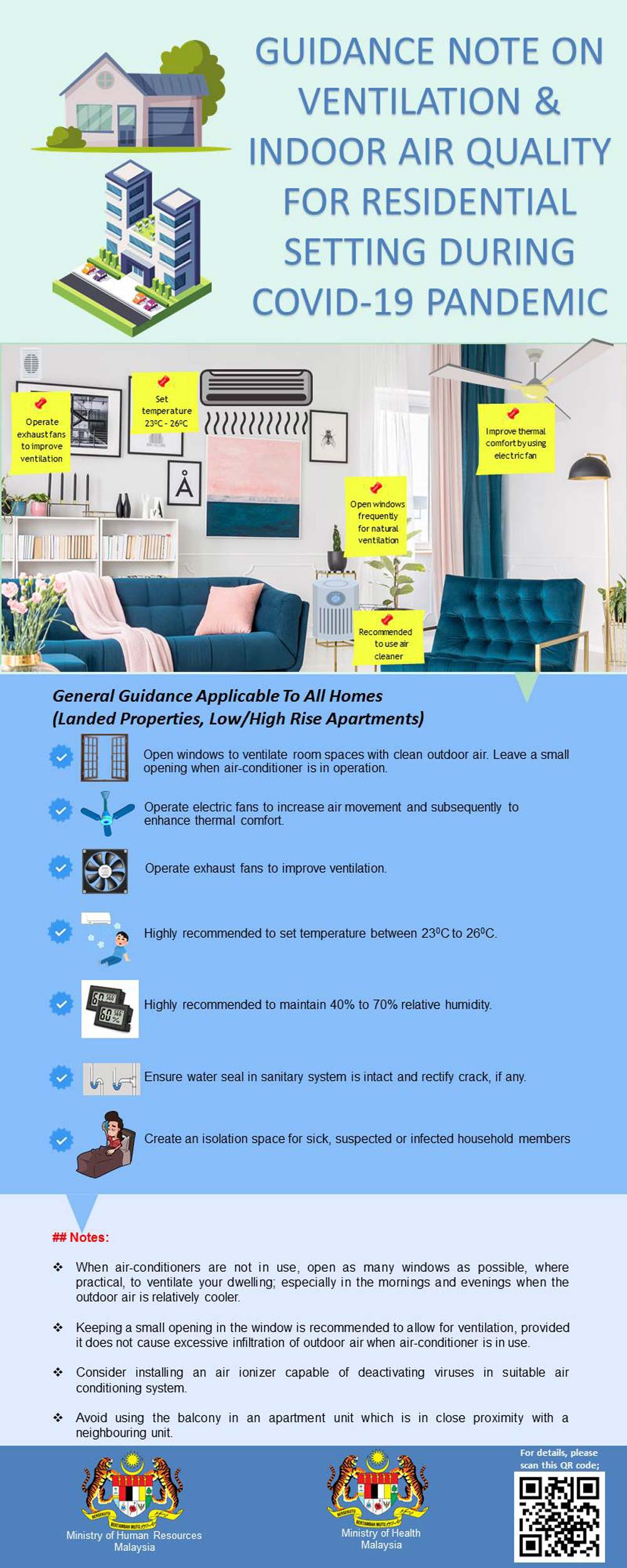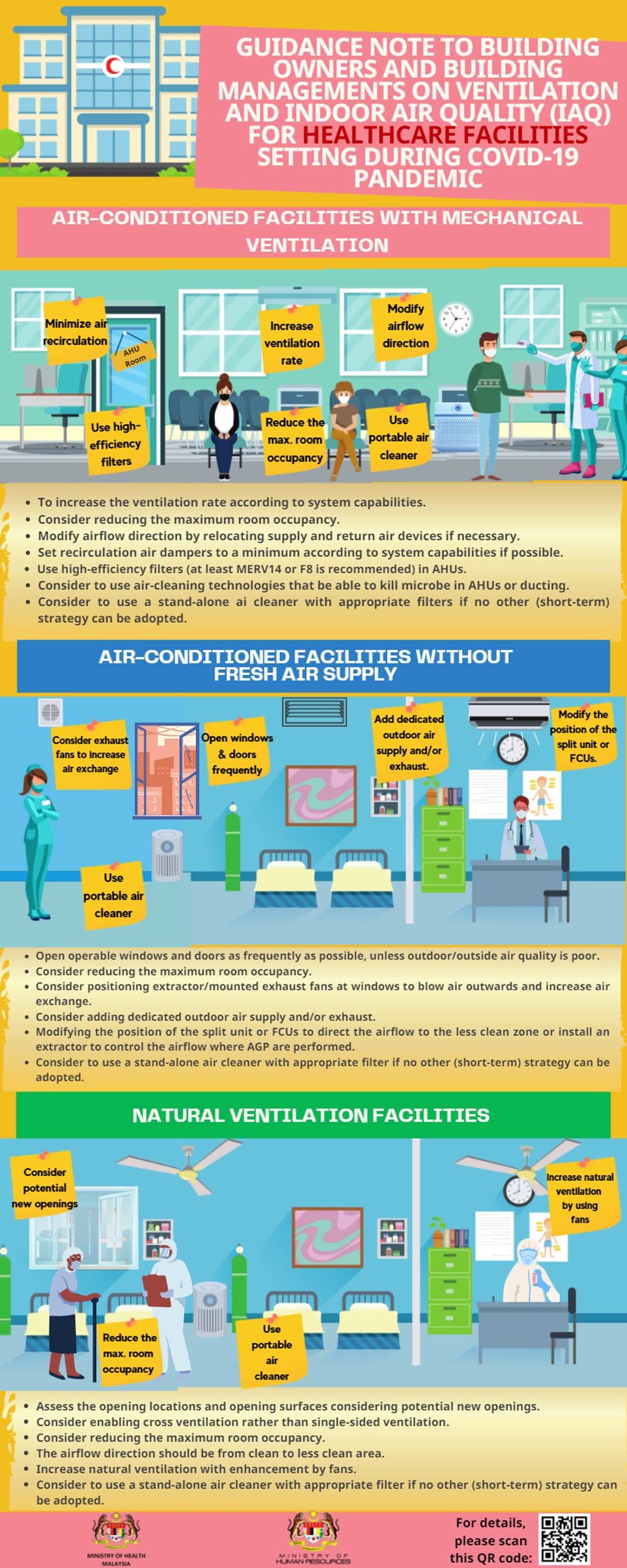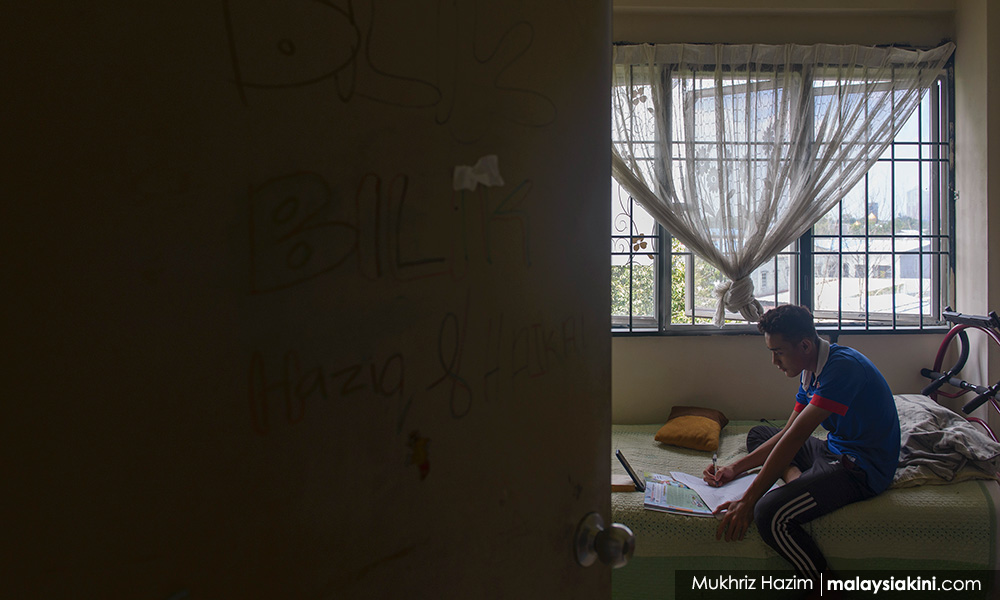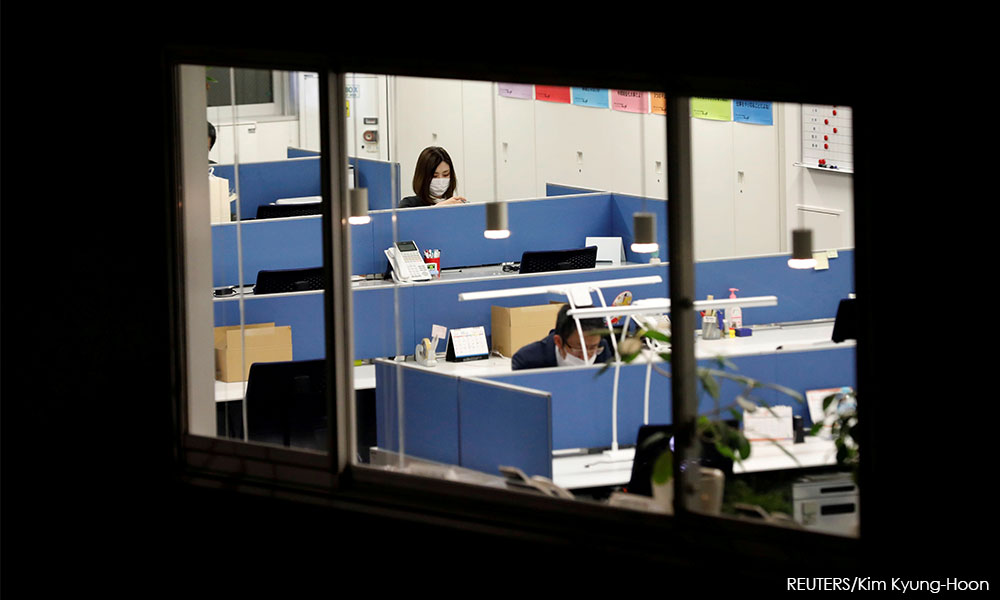The Health Ministry and Human Resources Ministry have released long-awaited guidelines on how to improve ventilation in homes, offices, and businesses such as factories to lower the risk of Covid-19 transmission.
Malaysiakini breaks down those guidelines.
General advice
The guidelines are split into four documents, but there are some common guidelines among all four.
The first is that putting in place portable air cleaners should not be the only measure to improve indoor air quality.
For air-conditioned locations without centralised mechanical ventilation (MVAC), doors and windows should be opened as frequently as possible to let fresh air in.
The recommended air conditioning temperature range is between 23 degrees to 26 degrees Celcius with relative humidity between 40 and 70 percent.
Stand fans can be used to blow air out of windows and doors or to blow fresh air in.
If using fans to increase ventilation, do not direct airflow directly from one person to another, as this can increase the risk of possible airborne transmission of the virus.
If using exhaust fans - such as in toilets - do not open windows directly next to it to avoid short-circuiting airflow.
Guidelines for homes
As per the general advice the guidelines do not recommend over-reliance on home air conditioning.
"This may give a false sense of freshness as they do not have ventilation provisions and their filtration systems are inadequate to filter or inactivate airborne virus particles," the guidelines stated.
It said when air conditioners are not in use that as many windows and doors should be opened to ventilate your home, especially in the morning and evening when outdoor air is cooler.
Small openings in windows while the air conditioning is on, is also recommended to improve ventilation.
The guidelines recommended installing mesh screens if mosquitoes and other insects are a concern.
While fresh air was highly recommended, the guidelines, however, cautioned those living in flats, apartments, and condominiums against opening windows that face neighbouring homes frequently unless necessary - such as to keep a room cool.
It also advised against using balconies that are in close proximity of neighbouring homes.
Home isolation spaces
Meanwhile, the guidelines also contained advice for creating isolation spaces for family members who are sick, suspected or have been infected by Covid-19.
In this situation, air conditioning should not be used in isolation rooms and windows should be opened for natural ventilation.
If using a shared bathroom, it is important to ensure good ventilation by either opening a window or using exhaust fans.
Do not open windows adjacent to a running exhaust fan to avoid short-circuiting airflow.
Toilet exhaust fans - if any - in the isolation space should be run continuously to lower the potential of aerosols escaping into the main living area.
Non-residential spaces without MVAC
For air-conditioned non-residential spaces without MVAC, such as some smaller offices or businesses, the guidelines recommend turning off the air-conditioning when windows or doors are open.
It said exhaust fans in places like toilets or kitchens should be operated at maximum capacity.
In such settings, the minimum recommended ventilation rate is 10 litres/second per person. If this can't be met, then the guidelines recommend reducing the number of people in an air-conditioned space.
It also recommended using portable air cleaners with particle filters with a minimum efficiency reporting values (MERV) rating of 13 to help remove airborne particles that can contain viruses. This must be used in addition to other measures.
Non-residential spaces with MVAC
For non-residential space with an MVAC system, the guidelines recommend increasing fresh air ventilation by opening outdoor air dampers 100 percent.
It also recommended air flushing before and after the space is occupied - if such a system is available.
It said MERV 13 or higher filters should be considered for use in the MVAC systems.
Besides portable air cleaners, the guidelines also recommended the use of sterilisation or deactivation systems such as ultraviolet germicidal irradiation (UGVI), ionisers, cold plasma bi-polar ionisation, and low density engineered ozone which can be installed in air handling units or ductworks.
There are also guidelines available for public spaces and healthcare facilities.
Keep up with the latest information on the outbreak in the country with Malaysiakini's free Covid-19 tracker.
Malaysiakini is providing free access to the most important updates on the coronavirus pandemic. You can find them here.
Help keep independent media alive - subscribe to Malaysiakini.





